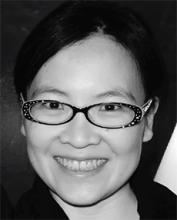Yuen Yuen Ang is Associate Professor of Political Science at the University of Michigan, Ann Arbor. She is also a faculty associate at UM’s Center for the Study of Complex Systems. In 2018, Ang was named an Andrew Carnegie Fellow by the Carnegie Corporation of New York.
One area of Professor Ang’s research examines strategies for enabling innovation in the public sector, where big data and technology offers many new possibilities for improving governance. Ang’s research employs a mixed methods approach, integrating ethnography, interviewing, quantitative analyses, and most recently, machine learning (automated text analysis). Her own research experience led her to appreciate the importance of applying quantitative and qualitative methods, or big data and thick data, at different stages of problemsolving, in order to achieve both relevant and rigorous insights.
Dr. Ang is the author of an award-winning book, How China Escaped the Poverty Trap (Cornell University Press, 2016), which introduces a new framework for enabling adaptive capacity and innovation—known as “directed improvisation”— illustrated in the context of China’s bureaucracy. Building off this book, one of her current projects uses machine learning methods to analyze ambiguous directions in large volumes of policy documents. Apart from her scholarly writing, Ang has written blogs on innovation and organizational reforms for the Stanford Social Innovation Review, UNDP (United Nations Development Programme) Transformation Blog, and OECD Development Matters Blog.
Ang has briefed and/or consulted corporations, governments, and international agencies, including UNDP on issues relating to innovation and tackling complex challenges in global development. She is also a member of a study group on technology & development at the Center for Global Development, based in Washington DC. A graduate of Colorado College and Stanford University, she was on the faculty of Columbia University’s School of International & Public Affairs before joining U-M.





